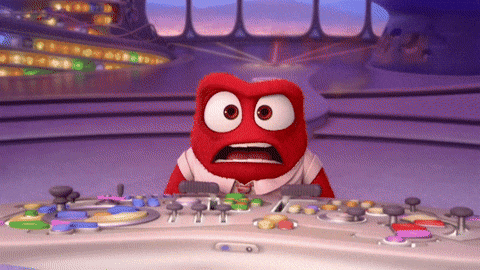Is it Normal That These are My Relationship Dealbreakers?
In this week’s blog I wanted to talk about deal breakers, and what they mean for a relationship. Specifically, what kind of deal breakers are normal, and how you can approach talking about them with potential partners without causing arguments. And this time I chatted to not one, but 3 guests about all things relationships! They are 4 of my best gal pals, met through work and continued a firm friendship over the years, Hannah, Ellie and Cat all have very different experiences of relationships, deal breakers and what negotiating around those hard boundaries looks like. In fact, we chatted so much that I’ve had to split this into 2 posts, so that this one doesn’t go on too long!
So without further ado, let’s jump on in!
What we’ll cover:
Dealbreakers vs standards
Dating apps and standards
The evolution of your dealbreakers
Building a relationship through dealbreakers
Prefer to listen? Head to the podcast here.
Meet the Guests
Since there are a few people I’m talking to and about for this post, I thought it would be good to start off with a very brief introduction to each one to provide some context. So we have:
Cat: Cat is long-time friend, and she describes herself as someone who is very slow to jump into things. She’s had 6 relationships in her life, but they have been few and far between.
Hannah: Hannah has known me for a while now, and we’ve been through a lot of ups and downs together. She’s now living with her boyfriend, and he is the first serious long-term relationship she’s been in.
Ellie: Ellie describes herself as ‘single and unable to mingle’ thanks to COVID. She’s the kind of person who’s always in and out of relationships, and most of them tend to last until about the 1 year mark. So she’s always looking for someone new in her life.
And then of course there’s me. If you’ve read my posts before, you might know that I’m more into serial monogamy. I’ve had 2 significant long-term relationships, and a few boyfriends before that in high school. But generally, I’ve moved from one person to the next.
Deal Breakers Vs Standards
One of the big things we talked about during the recording was the difference between deal breakers and standards, and how sometimes it can feel really difficult to tell the difference. I think ultimately standards are all about how you choose the people you’re involved with. And the more experience you have out in the world and the more you know yourself, the more critical you’re going to be of your potential partners. It’s still early in the relationship, and you’re both figuring out what you want from it and what that relationship will look like. And your standards evolve all the time and probably quite quickly, especially in the age of Bumble and Tinder!
But when we talk about deal breakers, it’s more like those things that make you think ‘no, I don’t want to be with this person if there’s this aspect to them’. They are your hard lines for how you want to be treated and what you want from life and from the relationship. The really common examples most people use are things like marriage or kids. If one partner wants to get married and the other doesn’t, then that can be a deal breaker, because they want fundamentally different things from the relationship, and those things aren’t compatible. So both partners would be happier looking for relationships that match their wants in life.
But your deal breakers might not be as big as that. When I spoke to Ellie, Hannah and Cat, we discussed some of the things that would be deal breakers for us, and we found it was usually much smaller and subtler, but still just as important.
Cat: ’They have to be able to change and grow. After all everyone does, but being able to change and grow together is a big one. Even if that’s something as simple as being able to go to therapy and work through any issues, that’s an important element in a good relationship. It’s having a shared worldview that matters, so if there is a difference there then that’s also a deal breaker for me.’
Hannah: ‘If I was having a disagreement with someone and they started shouting, swearing and calling me names, then I’m out. Also, as an adult, politics is kind of a deal breaker as well. If we have fundamentally different views, it’s never going to work. And I know kids is a big deal breaker for a lot of people, which you don’t really think of when you’re younger.’
Ellie: ‘You need to be able to communicate effectively and have some structured care in the relationship. If they reject your conversation and what I’m speaking about, then I just wouldn’t speak to them. And if they aren’t willing to talk through things, including ‘red flags’, and work on making things better then there is no us.’
I can’t end this section without sharing a story Ellie told of a first date during this conversation:
I recently went on a date with a guy. And I basically expressed a view that I've always wanted to adopt, like, it's a dream of mine. It might never happen. But I'd love that. And he outright said, I wouldn’t want to adopt, I want to see little me’s running around everywhere, and adoption isn’t achieving the same thing. And I was like, woah, I can’t believe you’re narcissistic enough to think adoption isn’t achieving, and all you want from children is to have lots of yourself in the world. So I said it was lovely getting to know you, but I’m out!’
And that, I think, is the best example of a deal breaker there could be, on both sides! But it also goes to show how valuable it can be to be up-front about your deal breakers, and encourage the person you’re seeing to do the same.
Dating Apps and Standards
One really interesting point Hannah touched on is how dating apps have influenced what we think of as standards, partly by pushing their own ideas of what should be standards or deal breakers. And because they force you to make judgements almost instantly, it can feel like you’re being a lot more critical, and your standards are much higher than they would be if you met that person face to face.
‘It’s like a joke, about things like height. On a Tinder profile you might make a judgement on height, like oh my god they’re only 5ft5 or something. But when you meet a guy at work or whatever, how often do you say to your friends ‘you know, he’s a bit on the short side’ as the first thing you say? You’d be more likely to say ‘oh he’s really funny, and he’s got a kind smile’. You don’t say nah, he’s a bit short and his job isn’t quite high status enough, he’s out.’
And that’s so true. There have been plenty of success stories of couples who meet on dating apps, but really, how can you tell anything about a person from their photo and a few stats? It’s being in front of someone and getting to know them that helps you realise if they meet your standards for a partner. It’s all in the connection, but dating apps have sort of made us forget that a bit.
Your Deal Breakers Can Evolve
One of the other things we noticed as we discussed deal breakers is that, for most of us, what we classified as a deal breaker had changed and evolved over the years as we got older. And I think partly that’s because you evolve as a person, so what you consider hard boundaries can change, become more or less defined, or disappear altogether.
When you’re first starting to explore relationships, there is a lot of figuring out what you would and wouldn’t put up with. So some of the ‘lines’ you draw are based on nothing but hypothetical thought, and probably weren’t that realistic. And sometimes you only find those lines by having them broken.
But whatever they were, those deal breakers are probably pretty different than the ones you have now! My guests even shared a few of what their early deal breakers were. Ellie said she wouldn’t be with a guy who didn’t appreciate her (even though she didn’t really understand what that meant at the time), and that she didn’t want to be naggy – instead she wanted to be cool. So she put all of that pressure on herself, and not a lot on her partner. Which meant she ended up putting up with a lot that she said she wouldn’t! Ellie also said:
‘I think your lines evolve, to be honest, through experience. For example, I saw my friends in relationships and thought, how is she accepting that, when it doesn’t look great at all? There was almost a line and then the things you experience in your own life – and when you look back there are things you never noticed were crossing a line, but other people did. And that’s good on them. But most of my lines and deal breakers evolved retrospectively. You look back and go ‘God, I can’t believe I thought that was OK. That’s so not OK.’ So you reflect on it, and that becomes another line for you, that you only discovered through experience.’
For Hannah though, that evolution looked slightly different.
’I think I didn’t know what I really wanted when I was younger, so it was really difficult to have solid deal breakers. And even when you started dating someone and it didn’t quite feel right, I would talk to friends and they would tell me to go on a second or third date, because ‘you never know’. But you know in your gut that something isn’t quite right there. So my lines evolved from me not knowing what I want, to understanding what I did want and what I was looking for.’
This is a bit of a theme for Hannah, because she met her long-term boyfriend on a trip where she didn’t know anyone else – so she felt more secure in her feelings and being able to trust her own gut, rather than letting friends become a bit of an echo-chamber about the relationship. It’s a bit of a cliché – but I’ve always said that trusting your gut is the most important thing in any relationship.
Building a Relationship Through Deal Breakers
When I put it like that, it must seem like finding and building a new relationship must get harder and harder as you get older, because you’re collecting all of these deal breakers with each new relationship. And as a new partner does something on, or close to your deal breaker list, it can be really tough to process. Do you let it go? Do you talk about it? Or do you leave then and there? If you talk to friends, they may pressure you to stay, after all they only did one thing, and it’s a new relationship so you don’t know they’re going to do it again. But you can hear that little voice inside saying ‘no, I took this a million times before, I’m not taking it again.’ Even though it’s a different person, that baggage has a tendency to hang on tight!
During the whole conversation, one theme kept coming back up, and that’s the need for a baseline of love, understanding and mutual respect in any relationship. And part of forming that relationship is understanding each other’s deal breakers, and having those very important conversations about your relationship. They are some of the toughest conversations to have, and they can be super intense, but not only do they give you a good understanding of their communication skills and how they handle conflict, they pave the way for a strong and long-lasting relationship. Things are always going to evolve and change, but if you can communicate well then you can continue to navigate that together.
Now I know I haven’t talked about my own deal breakers much in this post, and that’s because I wanted to have a chat about cheating, and what that looks like as a deal breaker. I know that leaves you on a bit of a cliff-hanger, but the cheating conversation is a really big and important one, so I wanted to save that for its own episode! So I’ll be talking more on that in next week’s post, along with having standards within relationships, and whether you can allow yourself to ask for things in your partner, without feeling like you’re being ‘too picky’. So make sure you come back next week for that jam-packed post! And for now, if you’d like to listen to the whole conversation from this week head to the podcast episode here.













I help late diagnosed ADHD folk make career and life decisions they trust. ICF Certified Coach, Youtuber & Writer.